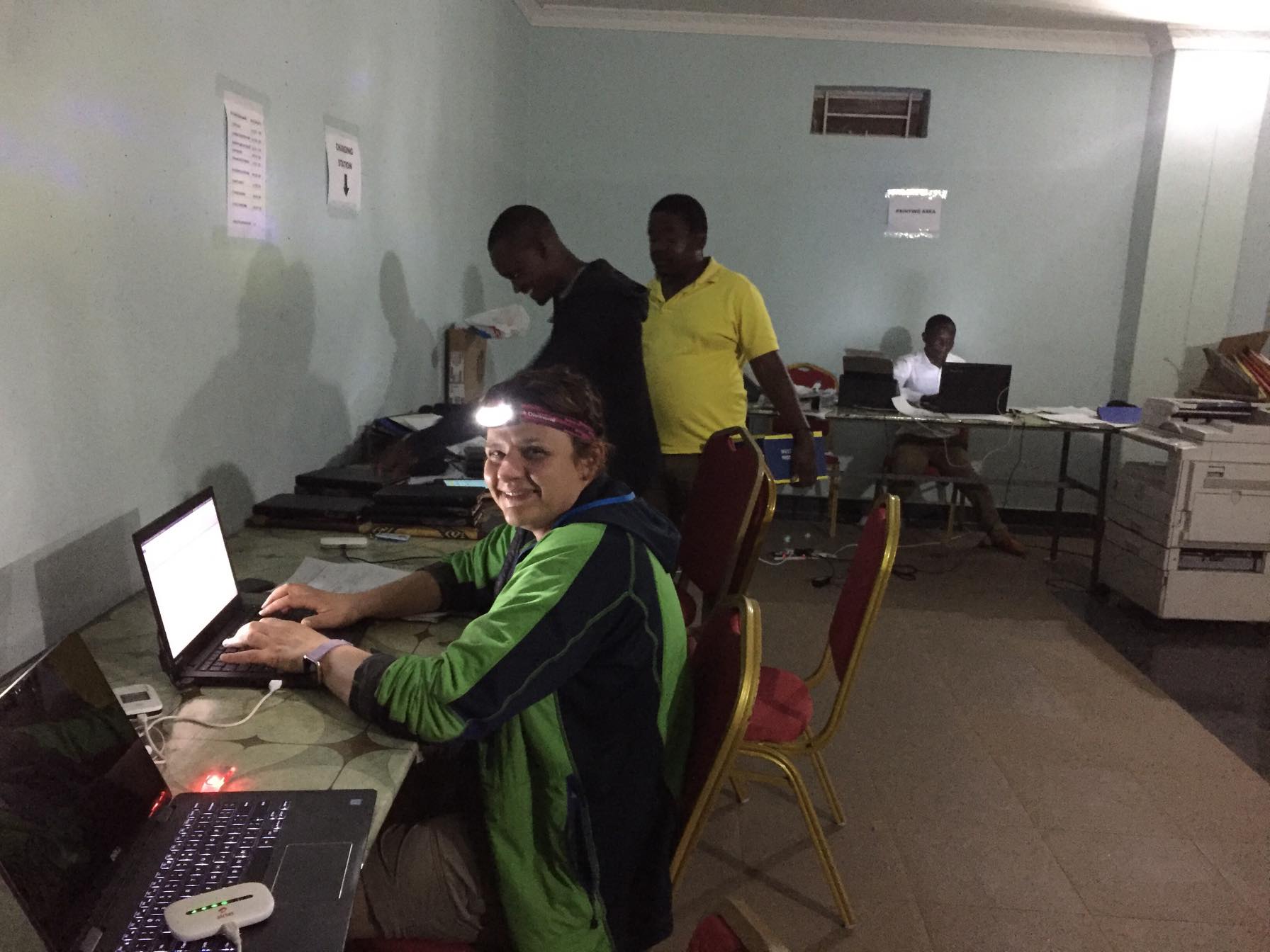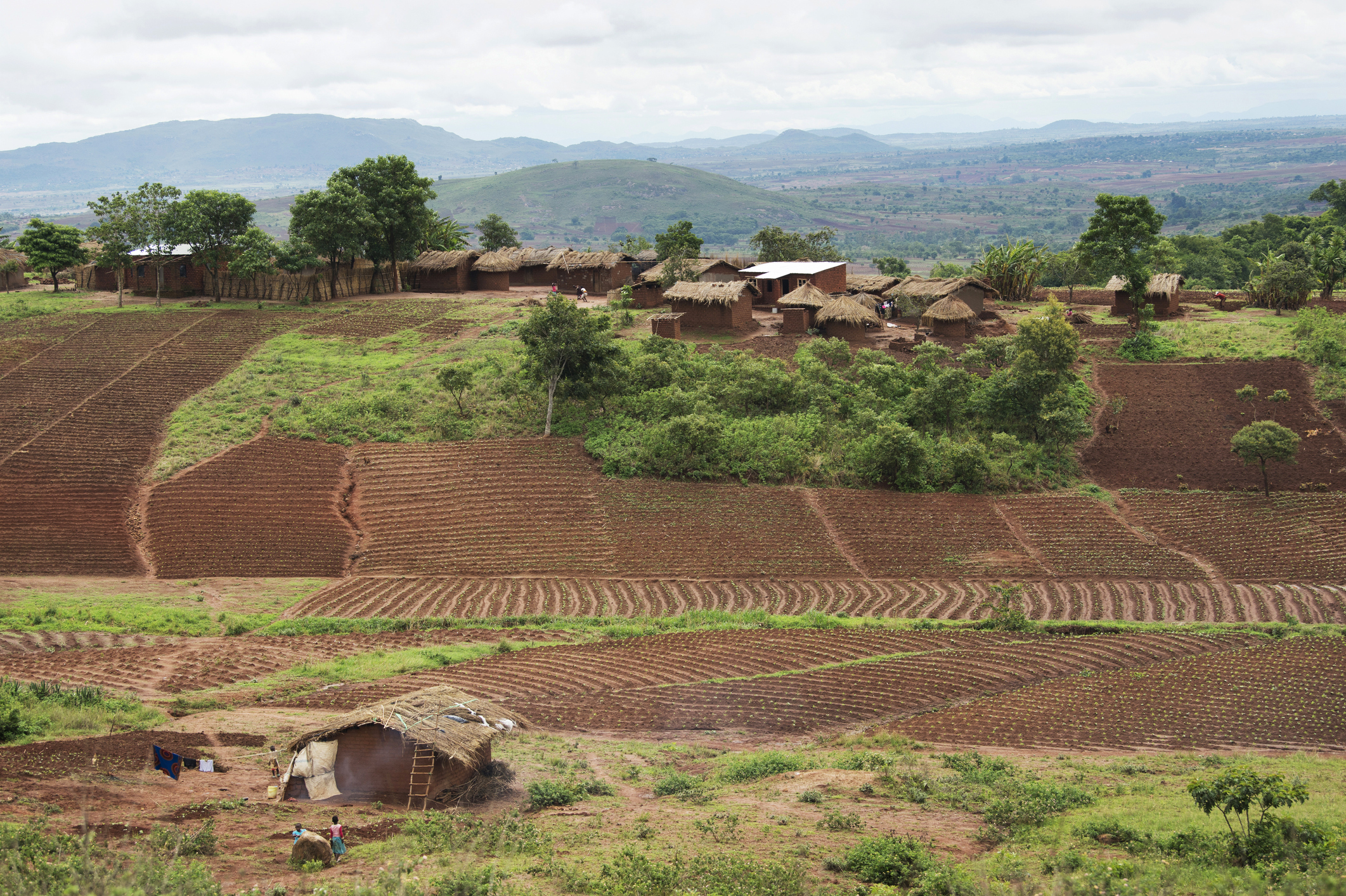The Malawi Longitudinal Study of Families and Health has been going strong for 25 years thanks to a collaboration between the University of Pennsylvania and researchers in the sub-Saharan African country. As life expectancy has increased dramatically, they have shifted their focus from HIV/AIDS to emerging concerns about aging.
A new $10 million grant from the National Institutes of Health’s National Institute on Aging, the largest single grant the Malawi Longitudinal Study of Families and Health (MLSFH) has received, is funding cutting-edge research to fill a gap in understanding about aging in low-income countries.
“Aging in high-income countries has been studied for many years, and it’s a big and prominent and important research agenda, and we know a lot about this. Aging in poor countries is really understudied,” says Penn sociology professor Hans-Peter Kohler, co-director of the Population Aging Research Center and director of the MLSFH since 2006. That’s despite evidence that cognitive decline occurs at younger ages in low-income countries.
Iliana V. Kohler, associate practice professor of sociology at Penn, has led the evolution of the project into an aging study, leveraging two-and-a-half decades of health and social data that provides a critical foundation for current and future research.
Kondwani Katundu, lecturer at the School of Global and Public Health at Kamuzu University of Health Sciences in Malawi, says the environmental factors that influence whether someone ages in a healthy manner or prematurely are not well-characterized in African populations. The National Institute on Aging (NIA) grant will help researchers collect genetic and epigenetic information to better understand “resilient agers,” those who maintain physical and mental health, according to Hans-Peter Kohler.
Katundu was one of several MLSFH collaborators from Kamuzu University who came to Penn for project meetings in the fall to plan upcoming fieldwork and analysis, along with Victor Mwapasa, professor of epidemiology and public health, and Kazione Kulisewa, head of the Department of Mental Health and a lecturer in psychiatry. Kulisewa says he was intrigued by the MLSFH work on aging because old-age psychiatry and cognitive impairment has been under-researched in Malawi.
“This project has been ongoing over 25 years because we’ve been able to innovate and come up with new ideas and adjust the team accordingly, and bring new people in to bring new expertise,” Hans-Peter Kohler says. Lauren Schmitz, assistant professor of public affairs at the University of Wisconsin-Madison, also visited Penn in the fall. Her work integrates economics and human genetics.
The team also works with project director James Mwera—a longtime partner in Malawi who coordinates data collections and has contact with interviewers, authorities, and village heads—along with the Malawi organizations Invest in Knowledge and Compelling Works.
Iliana V. Kohler says the welcoming nature of people in Malawi, known as “the Warm Heart of Africa,” is a big factor in the project’s longevity.
Mwapasa says while he lives in Malawi and understands its social context, tackling the country’s challenges requires expertise and technology lacking in Malawi. That’s where Penn comes in, and Mwapasa says the partnerships also expand the horizons of the medical students he teaches.
“There will be emerging problems, but when you establish these personal relationships, you don’t just sort out problems now, you lay the foundation for problems in the future,” he says. The challenges he cites include a lack of minerals and natural resources, a tropical climate that puts residents at high risk for malaria and other diseases, and a dense population, with 86% of people living in rural areas. Malawi is about the size of Pennsylvania but has more than 7 million additional people.
“Their means of survival is through agriculture, pretty much growing their food and raising their own animals, so every time they have social problems or health problems, like sickness, it means that it has a direct effect on their productivity,” Mwapasa says.
Expanding the focus
The HIV/AIDS epidemic peaked in Malawi in the 1990s and early 2000s. Antiretroviral therapy (ART) became widely available in rural parts of the country around 2008, reducing HIV transmission and allowing people to live with HIV without developing AIDS. According to the World Health Organization, life expectancy at birth in Malawi increased by 20.9 years between 2000 and 2019, from 44.7 to 65.6 years, compared to a worldwide increase of 6.52 years.
Susan Cotts Watkins, professor emerita of sociology at Penn, spearheaded the MLSFH in 1998, with an early emphasis on HIV/AIDS and its impacts on family planning. That included interviewing married women to understand how social networks and gossip impact the dissemination of information about AIDS.
Through the MLSFH, Penn’s Population Studies Center has gathered demographic, socioeconomic, and health information in multiple data collection rounds since 1998. The project has expanded its cohort from 4,000 to 8,000 individuals, and the publicly available data has yielded more than 250 publications and dissertations from Penn and beyond.
Iliana V. Kohler became part of the MLSFH in 2010, establishing its Mature Adults Cohort two years later. It includes people over 45, an age that looks very different in Malawi than in the U.S. Seeing a sharp rise in hypertension in rural areas, she led a team that gave blood pressure screenings to 1,075 older adults in 2013 and gave 19% of them referral letters for further medical assessment, which led to a 22% decreased likelihood of hypertension four years later.
In 2020, unable to proceed with their initial plan to be in the field for data collection due to the COVID-19 pandemic, they implemented a phone survey for the first time, reaching 2,262 people in June, July, and August. This survey found that trust in the government and local village heads—along with previous struggles with HIV/AIDS, tuberculosis, and malaria—shaped how Malawians responded to COVID-19.
Based on their success, Iliana V. Kohler says the team decided to use phone surveys to collect information from respondents more frequently, rather than waiting two or three years. With the proliferation of cell towers, service in Malawi has improved immensely in the past decade.
The MLSFH conducted its last data collection round in 2022, and Iliana V. Kohler says researchers enrolled new respondents, a thousand siblings of the original participants. The data collection involved administering a long questionnaire with socioeconomic, demographic, and health information, along with conducting cognitive testing and measuring blood pressure. The 2022 surveying, says Hans-Peter Kohler, was the last round for an existing grant on how individuals in poor countries survive an epidemic—a question that began with HIV and expanded to include COVID-19. Members of the larger MLSFH team are in the process of analyzing the data and preparing for the future of the project with new funding.
In 2024 and 2027, researchers intend to survey 3,500 respondents over age 45, conduct cognitive assessments, and include diagnoses of normal cognitive aging, cognitive impairment without dementia, or Alzheimer’s disease and related dementias. This will also include the collection of dried blood spots for DNA methylation profiling and whole-genome sequencing, to calculate aging biomarkers.
“The project expanded from having a single focus to becoming this very broad social science project that looks at these ranges from child and adolescent development to adult ages to health and cognition at older ages,” Hans-Peter Kohler says.
Working in—and with—communities
Iliana V. Kohler says in a lot of projects in Africa, people get funding, collect their data, and return home to write papers, with very little feedback to the communities. What distinguishes MLSFH, she says, is they go back to community representatives to talk about the results and why they’re important. She traveled from site to site in 2018, and this year, community representatives came to the city of Blantyre.
Iliana V. Kohler says the MLSFH can have a team in the field of up to 90 or 100 people. That includes interviewers conducting surveys, teams collecting health information and doing HIV or blood glucose testing, drivers, supervisors, support staff, and students and postdoctoral researchers from Penn and other institutions, who have regularly joined fieldwork over the past 25 years.
“Because you are visiting people in their homes, you are not only hearing from them, but from their wives, from their husbands, from their children. It’s a project that makes you understand a little bit the social context under which people live,” says Mwapasa, who has been working with the Kohlers for more than 15 years. The MLSFH is based in three districts in the country: Rumphi in the North, Mchinji in the Center, and Balaka in the South.
In addition to the impact of MLSFH research on social and health policies in Malawi, as well as on understanding of health and well-being in sub-Saharan Africa, the project has impacted the lives of many people in Malawi and elsewhere. For example, the project hires Malawi residents to work as interviewers during data collection rounds. Iliana V. Kohler says through the income they generate from fieldwork, many go back to school or open their own businesses.
“Throughout Malawi, we often encounter alumni of the project who have been able to obtain education and build careers based on funding and personal connections through the MLSFH,” she says. “Seeing these impacts of the project on individual lives is one of the many rewards we get from our work in Malawi.”
Hans-Peter Kohler is the Frederick J. Warren Professor of Demography, professor of sociology, director of the Population Aging Research Center, and senior fellow at the Leonard Davis Institute of Health Economics.
Iliana V. Kohler is an associate practice professor in sociology, associate director of the Population Studies Center, and senior fellow at the Leonard Davis Institute of Health Economics.
The MLSFH has been funded over the years by the National Institute of Child Health and Human Development, National Institute on Aging, Malawi National AIDS Commission, Swiss Programme for Research on Global Issues for Development, the Rockefeller Foundation, and the Mellon Foundation. Funding from Penn comes from the Population Studies Center, Population Aging Research Center, Boettner Center for Pensions and Retirement Security, Institute on Aging, Center for AIDS Research, and University of Pennsylvania Research Foundation.









